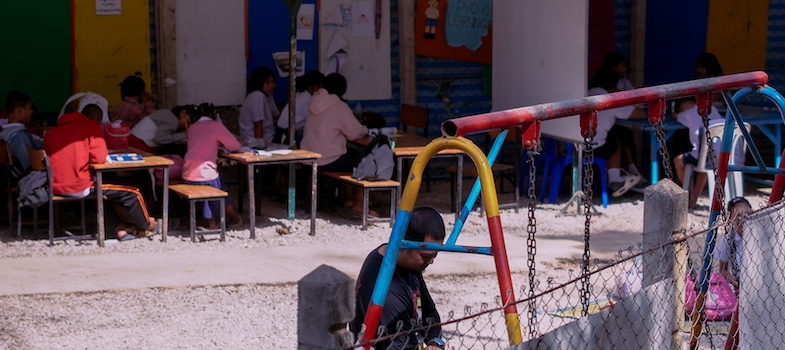2.7 Home visits - connecting school life to wider society
In the video, teachers from Marist Asia Foundation (MAF) on the Thai Myanmar border visit the homes of children they are concerned about. This can help them to better identify a child’s needs, which can lead to better outcomes in the classroom. These teachers’ reflections further illustrate some practical applications of the theories we have discussed.
Teaching in environments where there is conflict and/or mass displacement, or other challenges, means that children and young people often bring adverse experiences to the classroom. These experiences can affect how they learn, behave and communicate with others. It can be difficult for teachers to know how to respond.
For example, they may have experienced violence, separation from their parents, and distress. They may also be experiencing language barriers that affect their communication and participation in class. Conflict and displacement often disrupt schooling so that children may miss out on critical learning experiences. And as a result of traumatic experiences, they may have stress, anxiety, and emotional difficulties.
Teachers cannot solve all these problems in the classroom. However, if teachers have a critical awareness of these circumstances, they can help children and young people with empathy, care and creative pedagogical approaches. It may be possible to find out about children’s experiences outside of school by talking to their families, noting that the families may also need support themselves.
Read the two case studies (in Downloads) for more information about why and how teachers from MAF conduct home visits.
Over to you
Consider a student whose behaviour in the classroom has been challenging, now share in the forum
- Did you respond to the behaviour only or reflect further and become curious about the ‘story’ behind their behaviour?
- What did you do to understand and learn more about their story?
- Read other people’s posts on the discussion forum and respond with any suggestions or ideas based on your experience.
© UCL and the Inclusive Education Foundation (CoMOOCs Team), CC BY 4.0
